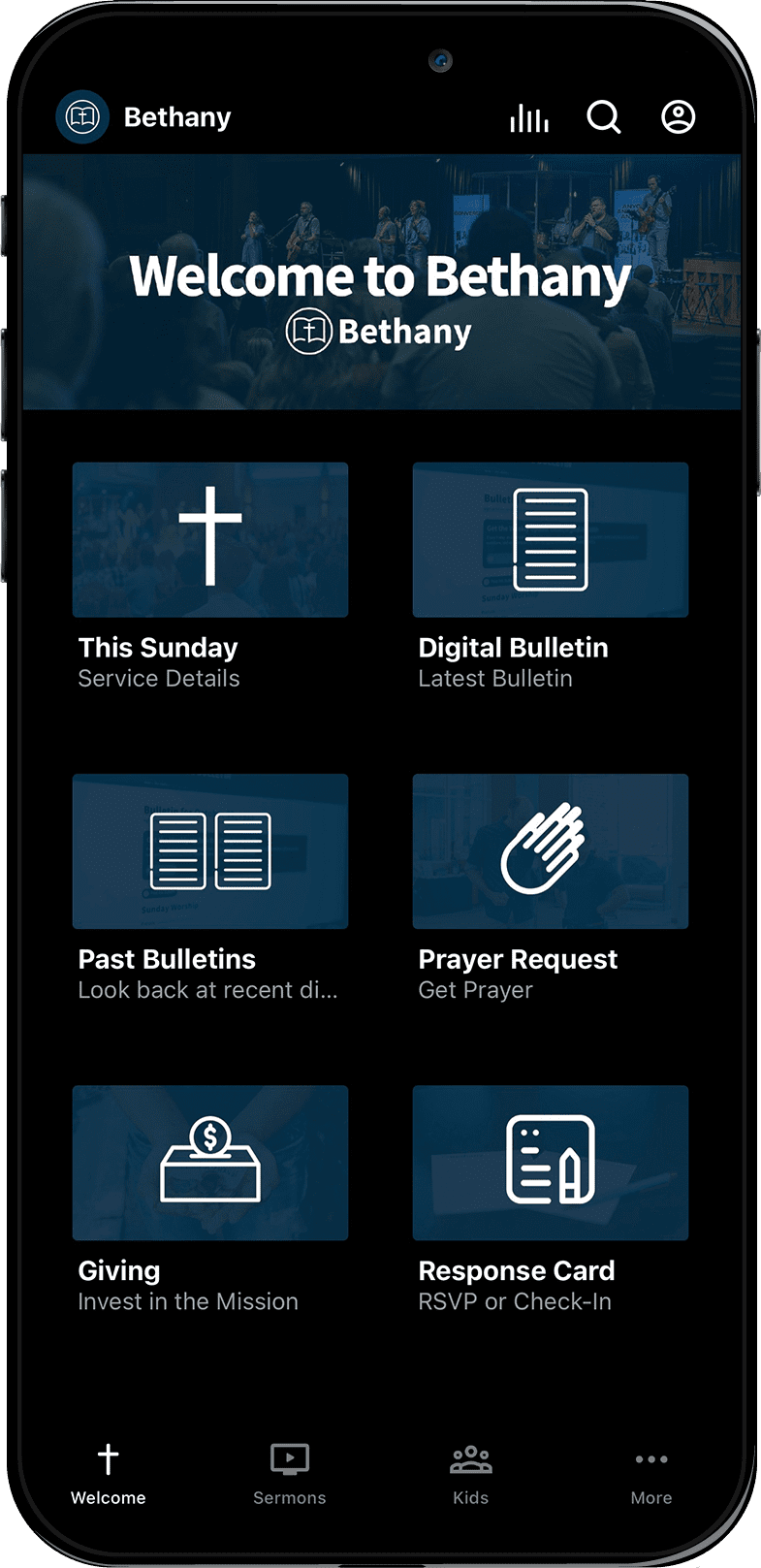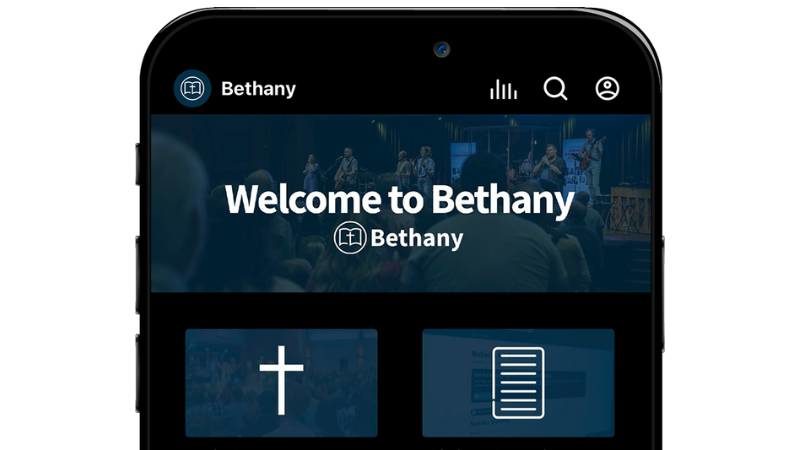In This Series
Encourage!
Acts 11:19-26 (ESV)
June 27, 2021
Dr. Ritch Boerckel
This is our last message in the book of Acts. I know we didn’t complete it, but we had the design to sort of go up to this point where the Gentile church is beginning to break open. That’s the rest of the book of Acts, that kind of describes God’s journey for the gospel to go into all the world. Next week, we’re going to begin a new series. It’s a Bible expositional series on the topic or on the doctrine of the Holy Spirit. So we’re going to talk about the Holy Spirit. Do you know that Baptists believe in the Holy Spirit? (Laughter!) We really do. Honest! We believe in the Holy Spirit and we’re going to talk about the Holy Spirit’s influence in our lives and how it is so important for us to worship the triune God—Father, Son and Holy Spirit—and understand the workings of each person in the one God whom we worship. So we’re going to take a moment, I think it’s about twelve weeks, to think about the doctrine of the Holy Spirit. So come back for that and invite your friends.
Acts chapter 11. We’re going to be reading verses 19 through the end of the chapter. So remember our context. The Gospel has come to the Gentiles in Caesarea through a guy by the name of Cornelius. Peter preaches to Cornelius’ family and friends. He’s a Roman centurion and God brings many Gentiles to faith. Now we see the continuation of the Gospel reaching more Gentiles in the city of Antioch.
19 Now those who were scattered because of the persecution that arose over Stephen traveled as far as Phoenicia and Cyprus and Antioch, speaking the word to no one except Jews. 20 But there were some of them, men of Cyprus and Cyrene, who on coming to Antioch spoke to the Hellenists (the Greeks) also, preaching the Lord Jesus. 21 And the hand of the Lord was with them, and a great number who believed turned to the Lord. 22 The report of this came to the ears of the church in Jerusalem, and they sent Barnabas to Antioch. 23 When he came and saw the grace of God, he was glad, and he exhorted them all to remain faithful to the Lord with steadfast purpose, 24 for he was a good man, full of the Holy Spirit and of faith. And a great many people were added to the Lord. 25 So Barnabas went to Tarsus to look for Saul, 26 and when he had found him, he brought him to Antioch. For a whole year they met with the church and taught a great many people. And in Antioch the disciples were first called Christians.
May God encourage us through the reading of His Word!
My granddaughter, Aleksi, had her first birthday last week. We’re super excited! One joy from our time together was Aleksi walked about 8 or 9 steps for the very first time. Wow! Walking is such a simple act, isn’t it? Yet, what fun we had in seeing this little one take her first steps. When she arrived to her mom, guess what we did? We all clapped and cheered like she had just won the Super Bowl. She looked at us with a huge smile and this face that just said, “I have accomplished something great!”
Why did we cheer for a little one year old for doing something so simple, something so common? You know, that evening, I didn’t cheer for Kimberly when she walked, or for Kiera or for Alexander or even for Malakai, who is three years old. I didn’t cheer when they walked. Why did we clap for Aleksi? The answer is she needs some encouragement at this point in her life. We wanted her to feel the joy of learning a new skill. We wanted her to feel more confident because it’s a rather scary practice for her. We wanted her to overcome the fear of falling down so that she would try again. By giving positive affirmation, Aleksi’s mind and heart is strengthened to persevere in this walking. Soon she is going to be running all over the house, but in this early season we know that encouragement makes such a big difference to little ones. She is helped when others cheer her on.
God employs the word picture of walking often in His Book to describe a God-pleasing life. In the Old Testament, Micah the prophet writes,
Micah 6:8 He has told you, O man, what is good; and what does the LORD require of you but to do justice, and to love kindness, and to walk humbly with your God?
Paul uses this metaphor over 29 times. There are 29 times in his letters. For instance, in Ephesians 5 he says
Ephesians 5:2 And walk in love, as Christ loved us and gave himself up for us,
Colossians 2:6 Therefore, as you received Christ Jesus the Lord, so walk in him,
Walking is also one of the Apostle John’s favorite metaphors as well to refer to a life lived by faith.
1 John 2:6 whoever says he abides in him ought to walk in the same way in which he (Jesus) walked.
My granddaughter Aleksi finds walking difficult at this stage, sometimes discouraging and dangerous. Walking is difficult because her muscles have not yet been fully developed. They haven’t been fully trained to walk. It’s discouraging because she often fails. It’s dangerous because sometimes those falls kind of hurt. She needs someone to encourage her!
Friends, do you ever find that walking humbly with God can be difficult and discouraging and even dangerous? All of us who are in Christ, do. Walking by faith is difficult because this flesh of ours is very weak and sin often deceives us. Walking in love is discouraging because we often stumble. We often fail. Walking with God is dangerous because the world hates God and will hate us when we walk with God. When Jesus returns, walking won’t be difficult or discouraging or dangerous. We’re going to be walking in full strength, with nothing hindering us. But right now in this world, we need to be encouraged!
Look around you for a moment. Look at some of the folks sitting near you. I don’t know if you know them or not, but look around. They’re a part of your church family, your brothers and sisters. Let me tell you, every person you see needs encouragement. Every one of them! Some believers here in our family are winning the battle. Some believers here in our assembly are losing the battle. But the truth is, every brother and sister is battling. That’s the nature of the Christian life. It is a war. It is a fight. So, every one of us needs encouragement.
As we look at Acts 11 this morning, I want you to ask yourself the question: Will I be God’s instrument to encourage my brothers and my sisters in their walk? Will I be God’s instrument? In Acts 11:19-30, we find an example of a man of encouragement. So much encouragement does this man bring to others that the apostles actually changed his name to Barnabas, which means “son of encouragement.” He started out his life as Joseph and then the apostles came alongside of him as he came to faith in Christ, was baptized, became an active member in the church there in Jerusalem. The apostles said, “We’re not going to call you Joseph anymore.” Really? “We’re not going to call you Joseph. We’re going to call you Barnabas. We’re going to call you Barney because that means ‘son of encouragement.’” I don’t know whether he liked it or not. That was just stuck and Luke kept it.
God intends our church family to be an oasis of encouragement in the midst of a desert of unbelief. That’s what encouragement is. It’s like refreshing spring water, a cool drink of water in the time when we’re parched and we’re thirsty. God intends the church to be the place of an oasis, so that when we gather together, though the world has been dry and hot and thirsty, when we gather together this is where we find refreshment from one another as we feed each other the Word, love, faith, hope, and encouragement. Over and over God commands us to encourage one another in our walk.
1 Thessalonians 5:11 Therefore encourage one another and build one another up, just as you are doing.
It’s a commandment for every one of us.
Hebrews 3:13 NAS95 But encourage one another day after day, as long as it is still called “Today,” so that none of you will be hardened by the deceitfulness of sin.
You see, the writer of Hebrews, underneath the Spirit, is saying this world is hard and sin is deceitful. If we don’t encourage each other, there are going to be some who fall and get deceived by sin. We need to remind each other what is true, who God is and what God has for us presently and in the future.
How does encouragement help us? Encouragement helps us see God as more close to us and less distant. It makes us see sin as more foolish and less appealing. Our trials feel less devastating. Our future appears more bright. Our enemy is exposed as powerless. Jesus is lifted up as the victorious Conqueror that He is. God’s blessings are seen as bountiful. The grace of God is found to be sufficient. The comfort of God is experienced. The holiness of God is magnified. The love of God removes self-pity and despair. The church grows into a dwelling place in which God lives by His Spirit. All of these happen as a result of the encouragement of the saints together. We pick up our story in verse 19. Look in your Bibles.
19 Now those who were scattered because of the persecution that arose over Stephen traveled as far as Phoenicia and Cyprus and Antioch, speaking the word to no one except Jews.
You remember, Stephen is martyred for the faith. He’s the first martyr recorded. Everyone is trying to find a safe place because they will literally be thrown into prison or killed for trusting in Jesus as their Savior. So they are moving to places where there is not that kind of persecution. They go great distances away; Phoenicia, Cyprus and Antioch. But they keep to themselves. These Jewish believers are keeping to themselves and they’re speaking the Word to no one, not the Gentiles in those communities, but the Jews.
20 But there were some of them, men of Cyprus and Cyrene, who on coming to Antioch spoke to the Hellenists
To the Greeks, to the Gentiles there in Antioch.
also, preaching the Lord Jesus. 21 And the hand of the Lord was with them, and a great number who believed turned to the Lord.
What we see is God is doing His work and we’re His instruments. Who would have thought that the mission of these folks who are scattered and scared as they start to approach Gentiles, was going to be successful? Well, it’s successful not because they were so good at sales. But it’s successful because the Spirit of God is at work through them, through the Gospel. This begins a radically new chapter in God’s plan of salvation as Jews and Gentiles are becoming part of the same family, the same church. Jews are recognizing that God’s plan is for Gentiles to be co-heirs with them, to also receive all the blessings and promises of God. So a church is planted in Antioch.
I want you to note that the church that is planted there is not planted because of the apostles. Sometimes we think of the apostles as specifically trained men and they are. The eleven all followed Jesus for three years in His life. But here, this church is planted how? It’s through the witness of lay people. These are people who are just zealous for the Lord. They are people like you. They are people who haven’t gone to Seminary, people who haven’t gone to Bible school. They just loved the Lord. So when they get scattered because of persecution to a new city and they find a job there, they just start talking about Jesus and a church is planted. Many people come to know the Lord because these lay folks, these members of the church, in their love for the Lord, are sharing who Jesus is and what Jesus has done. God is opening hearts. He is changing lives.
22 The report of this came to the ears of the church in Jerusalem, and they sent Barnabas to Antioch.
The apostles are mostly there in Jerusalem and the church hears about this church starting in Antioch, made up of Gentiles. And who do they send? They send Barnabas, the son of encouragement, to Antioch. Luke introduces Barnabas in this story as though we already know who he is. We should, because Luke has talked about him before. Remember from Acts 4, that Barnabas is a Jewish man who grows up in Cyprus. He comes to faith in Jesus Christ. He’s in Jerusalem as he hears the Gospel, likely through the preaching of the apostles. He is baptized and becomes a member committed to serving God in the church. His parents have named him Joseph at birth, but the apostles said, “You’re going to be called Barnabas, ‘son of encouragement.’”
Acts 4:36-37 Thus Joseph, who was also called by the apostles Barnabas (which means son of encouragement), a Levite, a native of Cyprus, sold a field that belonged to him and brought the money and laid it at the apostles’ feet.
Joseph encourages others in the church so consistently, so deeply, that he has become known as an encourager and he cheerfully gives of his resources, this field that he sells, to say the church can use the money from this field to advance the name of Jesus. So he cheerfully gives that field for the glory of God. Then Barnabas appears in Acts 9. You perhaps remember this part of the story as well.
Acts 9:26 And when he had come to Jerusalem, [this is Saul or Paul] he attempted to join the disciples. And they were all afraid of him,
Remember that he was a persecutor of the church.
Acts 9:26 …for they did not believe that he was a disciple.
They thought this was some kind of ruse.
Acts 9:27 But Barnabas took him and brought him to the apostles and declared to them how on the road he had seen the Lord,
He is so other-oriented, he has so much faith in God that he says, “No, I need to encourage this new convert, Saul, and I need to come alongside him even at great risk. If he’s lying, God has my life in His hands anyway. But if he’s telling the truth, and I think he is, it would be terrible for us to withdraw ourselves from our brother.” That’s his heart of encouragement, his heart of otherness. Have you ever thought about what would have happened if Barnabas hadn’t been such an encourager to Saul early, and the church had kept distance from Saul? What a tragedy! So God uses the courage of encouragement through this man, Barnabas, to ultimately spread the Gospel to the world. So now we pick up in our story in Acts 11, in verse 22 again.
22 The report of this came to the ears of the church in Jerusalem, and they sent Barnabas to Antioch. 23 When he came and saw the grace of God, he was glad, and he exhorted them all to remain faithful to the Lord with steadfast purpose,
Why did he do that? Well, because
24 for he was a good man, full of the Holy Spirit and of faith. And a great many people were added to the Lord. 25 So Barnabas went to Tarsus to look for Saul, 26 and when he had found him, he brought him to Antioch. For a whole year they met with the church and taught a great many people. And in Antioch the disciples were first called Christians.
There in verse 23, you might just underline that word “exhorted.” I actually wish the ESV would have translated that the way almost every other translation gives it. Every other translation reads the word “encouraged them.” The Greek word here is parakaleo. I bring that up because it’s going to kind of sort of be a foundation for our series next week. Parakaleo simply means “to call alongside of.” The idea is a person coming near to another person who has a need and then offering assistance to help. So parakaleo is to come along and help, to come along and give positive reinforcement, whether that’s physical, whether it’s verbal, whether it’s emotional, whether it’s spiritual. It’s coming in some way to strengthen the person who needs assistance. Next week we’re going to discover that the Holy Spirit is called the paraclete, the Helper. That’s going to be the name of our series: The Helper. He is the ultimate Helper, paraclete, who parakaleo’s, who encourages the saints. But the Holy Spirit uses people like you and me and like Barnabas to be His instrument of encouragement.
This word “encourage” is always positive. It always is upbeat. Sometimes it means to comfort a person who is hurting. Sometimes it means to cheer on a person who is weary and struggling. Sometimes it means to instruct a person who is confused and needs some help to understand what God would will. But encouragement provides strength from one person to another. The idea is, you can imagine sort of a weary traveler who has traveled a long distance under intense heat and he has this huge backpack on. It’s so heavy. You can almost see him struggling under it. You come alongside of him and as you do, you see he stumbles and nearly falls to the ground. You reach out and grab him. That’s parakaleo. It’s coming alongside of him to say, “Let me help you. Let me first keep you from falling. I see you’re weary, friend. Let me take your pack for you, now. Let me take it off. Then if that’s not enough, let me put my arm around you. Let me support you as we walk together. Where are you going? I’ll walk with you.” That’s encouragement. So Barnabas is sent by the apostles in Jerusalem to encourage these new saints.
Let me ask you, do you wish to be a Barnabas, to be a person who encourages others? Do you think it would be fun to be used by God to help your brothers and sisters to grow strong in their faith? Do you think it would be exciting to be used by God to strengthen your church family for the ministry that they have in the community and with other believers? Well, God says that each one of us can. It’s not a special gifting to be able to encourage. I think Barnabas did have a special gifting, but all of us have access to that kind of impact.
As we look at Barnabas, we learn some things about encouragement. We’re going to look at five specific commitments that all encouragers have in common. Kind of reflect on your life to see, “Is this true of me?” As these commitments sort of come in line in our own hearts, we will find that God will use us in amazing ways to encourage our brothers and sisters.
Commitment #1: A willingness to be sent by God.
22 The report of this came to the ears of the church in Jerusalem, and they sent Barnabas to Antioch.
It’s easy to run by that and say, “Oh, they sent him around,” like Barnabas is just sort of waiting around to be sent somewhere. Barnabas had a job. He had friends. He had a house. He had stuff. He had kind of settled into Jerusalem and the area, and had gotten comfortable there. The church leaders came to him and said, “Hey, Barnabas. You need to pick up and travel 300 miles to a city that you’ve never been, to a people you don’t know, and we’re going to send you there.” If I came up to you today after the church service and sent you to a city 300 miles away and said, “I just believe you need to go,” what would you say to me? You’d say, “I need to pray over it.” That’s the least. Then you’d go home and say, “We prayed. We’re not going to go.” That’s the likely response.
Now these guys of course are apostles. They have authority from God and they don’t do this lightly. They just don’t do it to every person. So this is a serious matter and Barnabas understands that. But what did he do? “I’m hearing the apostles share with me what God’s will is for me and I’m ready to do it today. Once I know that this is what God would will for me, I’m there.” That’s what faith does. It did it with Abraham, for instance. God said, “Go to the place I’m going to show you,” and off he goes. So the first act of being an encourager, the first commitment is a willingness to do what God calls us to do, to be who God calls us to be. Barnabas is described as
24 for he was a good man, full of the Holy Spirit and of faith.
I want you to see that Barnabas did not follow his heart. He yielded to the Spirit. He yielded to God’s Word. There is a big difference between that. He didn’t say, “But wait a minute. I have dreams that I’m living out right here in Jerusalem. I don’t think God would have me give up my dreams.” He didn’t speak in that kind of language. Once he came to understand that this is what God would have him to do, once that became clear to him, by faith, he acted. He’s going to do it again in Acts 13, by the way, when they send him and Saul off on the first missionary journey.
Now, most often, God doesn’t have to move us from our hometown in order to encourage others. But here’s the question. Here’s what we have to have. This is where the willingness comes in. Am I willing to approach any person that God prompts me to encourage? Because the truth is, while you might not have to move 300 miles away, you might have to move 300 feet right after the service and say, “God is prompting me to go and find this person that has been on my heart and to talk to them and to pray with them or to try to encourage them in some way. I know they need encouragement and I want to encourage them.” The question is, am I willing to do that? It’s kind of scary. I don’t know how they’re going to think when I approach them. Maybe they don’t like it, even. Maybe I’ll look a little odd. But the question is, if God prompts you to encourage somebody, we ask the question, am I willing to do it? Or will I allow distractions? Will I allow my fears to control?
So Sunday 180! Again, the whole idea behind investing 180 minutes is not just to put in our time at church. I believe investing time together when we’re all gathered together positions us to listen to the Spirit, to take some time to listen to the Spirit and to be directed by the Spirit in the way that we minister to each other, the way that we would encourage each other. It gives some time as well for the Spirit to open up some doors that we otherwise wouldn’t have even considered having, in order to encourage. Here’s what Hebrews 10 says.
Hebrews 10:25 not neglecting to meet together, as is the habit of some, but encouraging one another, and all the more as you see the Day drawing near.
One of the primary reasons why gathering together on a Sunday morning is so important is not so that we’ll get something out of it, although hopefully, that happens. That is an important part. I wouldn’t besmirch that. But one of the issues is how can I encourage my other brothers and sisters if I’m not gathering together with them? The whole point is when I come together, I want something dramatic to happen through me, not just to me but also through me, for God’s Spirit to work.
Commitment #2: Grow in godliness.
Luke makes much about Barnabas’ spiritual life. Again, he says of Barnabas
24 for he was a good man, full of the Holy Spirit and of faith.
The Holy Spirit is the one that produces a love within us for others that makes us willing and eager to encourage. We don’t have that in us naturally. Now, again, there are some folks that are natural in the sense of being positive and in the sense of reaching out. But to spiritually encourage another person, that comes from the Spirit of God. Our reluctance to encourage others is a key indicator of the lack of where the Spirit of God is working in our life. Paul says in Galatians 5
Galatians 5:22-23 But the fruit of the Spirit is love, joy, peace, patience, kindness, goodness, faithfulness, gentleness, self-control;
It is our love for others that drives us past a lot of obstacles. We’re busy people. It’s kind of scary to come up to people we don’t know that well and to offer friendship and to express words of love and spiritual encouragement. All of these obstacles stand in our way. But it’s the Spirit of God that produces a love that says, “God, you have placed on my heart a desire to see others receive eternal reward and eternal joy. You’ve given me opportunity now to help them on that path, to strengthen them and encourage them on that path.” So it is this pursuit of godliness. It’s being before doing. So before we can do the work of encouragement, we have to be the person who is filled by the Spirit. So again I just want to encourage you that this ministry of encouragement is not about just starting some new practices. It’s about focusing on, “Lord, am I really your man, your woman, your boy, your girl who submits my life daily and has the Holy Spirit working in me and through me?
We’ve talked about how this world is not a friend of grace. There are so many ideas that the world presents to us and it’s easy to drink from the kool-aid. One of those ideas that perhaps underlies all of them is the world’s doctrine of self. The world’s doctrine of self has captured the hearts and minds of many believers. As a result of the world’s ideas of self, I could even call it the cult of self, we look inward for meaning rather than upward and outward. God intends for us to find purpose and meaning by first looking upward to Him and then outward toward other people. The cult of self says that’s not where you’re going to find meaning. “You first have to look out for yourself. If you don’t love yourself first, you can’t love anything else.” That’s the cult of self. It is this cult of self that enters into faith and destroys faith. It destroys God’s work in a church.
I’ve heard a phrase often enough over the last several years. If you’ve used it, I don’t intend to necessarily insult you at this moment. But I want to talk about the phrase because I think it betrays a lot of this cult of self, this idea about self that underlies even in the Christian realm. That phrase would be a person saying something about like, “My goal is to become the best version of myself.” What a silly thing for a follower of Jesus Christ to say! “My goal is to become the best version of myself.” Who are we? What’s our identity? Well, look at verse 26.
26 … And in Antioch the disciples were first called Christians.
The idea is that our identity is not bound up in me, in myself. My identity is now bound up in Christ. My identity and my purpose is not bound up in my dreams for my life, but in Christ. For me to live is Christ, to die is gain. Someone who loves that phrase may say, “The best version of myself is to follow Jesus.” Well, that’s good. I’m glad at least the idea may be at least somewhere in there for the Christian. But let’s make Jesus explicit in the way we share our goal. Let’s not talk about self. Let’s talk about Christ. This is the way the Apostle Paul said it in Galatians 2.
Galatians 2:20 I have been crucified with Christ. It is no longer I who live, but Christ who lives in me. And the life I now live in the flesh I live by faith in the Son of God, who loved me and gave himself for me.
So this commitment to say, “I want to live a God-centered life,” is a commitment that is essential to this realm of encouragement. Will we walk by the Spirit so that the Spirit will equip us and energize us for the ministry of encouragement?
Commitment #3: Rejoicing in the grace of God at work in others.
23 When he came and saw the grace of God, he was glad,
Was this church perfect? No! Did this church have problems? Yes. Did the people still sin? Yes. All of these things. Yet for all of these things, when Barnabas comes, the thing that he sees is something that God is doing that causes him to be excited. Regardless of the fact that there are many things he could point at and say, “Hey, you guys aren’t doing this. You guys aren’t doing that. Look at where this church is failing.” He could have pointed out all those things. But here’s what he said. “What I see first is that God’s grace is working in your hearts and I am rejoicing over that.” An encourager is one who sees. It’s not that we’re blind to the needs for growth, to the failures. It’s not that we’re blind to that. But an encourager looks at a person who is a child of God and they see the grace of God and they say, “I just want to rejoice. The first thing I want to do is I want to share with you what I see God doing in your life and I’m just excited about that.”
This past week, we had Vacation Bible School and we had a number of kids come to profess Christ. Through the teaching of the Gospel, they came to believe in Christ. Praise God! Can we give God a thank you for that, to answer our prayer? (Crowd claps!) Two of the teachers came up to me and on a couple of days, they would bring kids and they would say, “Pastor, we want you to see and know what just happened?” They would have so much enthusiasm. Why? Because they were seeing the grace of God in a young man, a young woman, and they were rejoicing to such an extent that they wanted others to rejoice as well. That’s what we do! Wouldn’t that be cool to have other people see the grace of God at work and rejoice in it? What an encouragement that would be! There’s Barnabas. He is looking for evidence of God’s work and when he sees it, he rejoices and he acknowledges it.
Commitment #4: Nurture deeper faith through the Word.
Nurture faith in others through the Word. Encouragement is not merely an emotional pick-me-up. Biblical encouragement points to Christ and points to the Word of God. Let’s just look at this again in verse 23. He was a man of
23 …steadfast purpose, 24 for he was a good man, full of the Holy Spirit and of faith.
In other words, his purpose was to encourage them and exhort them to remain faithful to God.
26 …For a whole year they met with the church and taught a great many people.
So for a whole year, they just had this ministry of encouragement through teaching the Word, meeting with folks face to face and sharing the Gospel, sharing the hope of Christ through the Word. Christian encouragement, biblical encouragement includes bringing the Word to people to help them grow in their faith. It’s not just to encourage them emotionally. It’s not just to help them physically. Again, we’re whole people and biblical encouragement includes physical, it includes emotional, it includes relational strengthening. But at its center is a spiritual focus.
Barnabas and Paul are teachers, so they have the gift of teaching, to be sure. But I believe that every one of us who has access to Scripture, and that’s every one of us, could be used simply to say, “There was a verse that God brought to my heart today or this week and I would like to share it with you. Would you mind if I shared with you that verse? It really encouraged me.” For those kinds of conversations, you don’t have to have Bible training. You don’t have to have Seminary training to have encouragement where you bring the Word of God to others. I know it might feel really strange to do that for the first time. As you begin to practice it with your children and with your brothers and sisters in the church and say, “Hey, there is something I read. Can I share it with you? I’m just excited!” That’s first showing an interest in the other person’s spiritual progress and then using the Word in simple ways and stepping back and watch God use His Word to build faith, to grow faith. Every person is in a battle. Look around you again. Some of our brothers and sisters here this morning are losing the battle. Some are winning. We all need to hear the Word of God from one another. That’s the issue. That’s encouragement.
Commitment #5: Enlist others to the ministry of encouragement.
25 So Barnabas went to Tarsus to look for Saul,
He said, “Saul, You have to come with me. This church needs a lot of encouragers and we need you to come.” So part of the commitment of encouragement is also encouraging others to encourage.
Do you want to be used as God’s instrument to bring strength to your brothers and sisters? Be willing to be sent by God. Commit yourself to growing personally in godliness, to be filled with the Spirit. We’re going to talk about that more in the weeks ahead. Rejoice in the grace of God that you see in that person’s life. Tell them what you see. Nurture deeper faith through the Word. And then enlist others. Barnabas didn’t try to go it alone, but Barnabas was greatly used by God in amazing ways.
Friends, God commissions us in His family to be an army of encouragers. Therefore, encourage one another and build one another up. God intends our church family to be an oasis of encouragement in a desert of unbelief. The church is designed to be a people who refresh one another as we follow Jesus together. Let’s be that church through the power of God’s Spirit.
Latest Sermon Series
Get the App
Watch the Latest Sermon
Get access to each week's sermon right on your phone. Look up sermons & series.Get the Digital Bulletin
Get the latest updates, events, & family news by checking out the digital bulletin.

- 1Watch the Latest Sermons
- 2Get the Digital Bulletin
- 3Tell us how to pray for you
- 4Get updates and notifications









